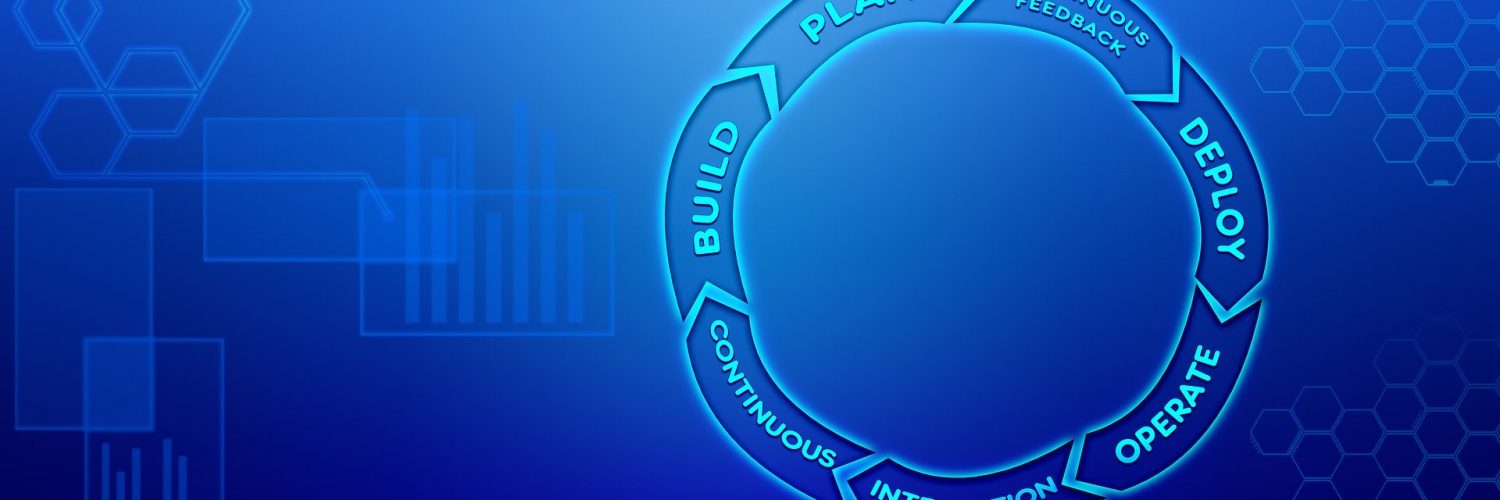“Currently, DevOps is more like a philosophical movement, not yet a precise collection of practices, descriptive or prescriptive.” — Gene Kim, TripWire
The software industry is buzzing with a new keyword these days; from the coders to the ones taking care of processes, DevOps is the talk of the town. However, understanding DevOps and its functions are easier said than done. Most developers unnecessarily complicate DevOps and end up making it their foe. Understanding and simplifying DevOps is the key to harnessing its potential.
Most organizations these days are deploying DevOps to enhance their processes and yield better results. Naturally, professionals with expertise in DevOps are in demand. So for those looking to stay ahead of the competition, it’s quintessential that they get well-versed with DevOps. After all, understanding is the key to innovation and improvisation.
Modern-day organizations will surely expect their DevOps professionals to initiate and lead the way towards streamlining their workforce. So for those looking to gain an upper hand in this highly desired skill, below is a comprehensive guide on understanding DevOps and the several ways a professional can gain expertise in it!
What is DevOps? Understanding DevOps
DevOps can be a multi-headed foe for those who are looking to understand it by its definitions; simply put, DevOps integrates the two words in its etymology – Development + Operations. With the markets expecting businesses to be more agile and productive rather than stable, DevOps is a perfect way to keep up with the changing pace while ensuring the proper allocation of resources at hand.
Essentially a culture, rather than a tool, DevOps focuses on enhancing the communication between the Development and Operations team. With their combined expertise, their organization can focus on core strengths while delivering the software to the markets at a rapid pace. Also, the key focus of DevOps is ensuring consistent quality and maintaining security, not just between the various levels of an organization, but also between the organization and its customers.
DevOps is responsible for reliable work processes as well. It guides the operations team in analyzing and reporting issues, while also aiding the development team in resolving these issues at a tremendous pace. With the help of DevOps, organizations can optimize their work processes to yield faster and stable results.
DevOps Tools
For those looking to gain expertise in DevOps, it’s quintessential for them to understand the various tools which can aid a DevOps engineer in their work.
Since the primary focus of a DevOps engineer is to optimize and enhance the software development life cycle, the tools required to do so are versatile and can be a game-changer if they are explored adequately.
For coding and configuring, tools like Gitlab, Github, IBM, and Bitbucket are extremely helpful. For testing software releases and enhancing their development process, tools like Flawcheck, SonarSource, and Skytap are highly recommended.
For managing software changes and deploying them to their production cycle, software tools like Clarive, BMC, Flexagon, and VMware are irrevocable important and recommended. For managing infrastructure as code, Ansible, Chef, Otter, and Salt need to be checked out. For monitoring processes, Plumbr and Wireshark top the Google list for monitoring tools of 2018.
These tools have been known to significantly enhance a DevOps engineer’s work, and researching about them is a sure-shot way gaining an advantage in a professional’s DevOps career.
How To Become A Better DevOps Engineer
To stay ahead of the game, software engineers need to know as much as they can about DevOps. Competition is ruthless, and organizations want the very best, so DevOps engineers need to constantly update their information and learn more about what’s working in the current market and how to upgrade their existing skills.
Quora is an excellent platform to communicate and collaborate with fellow DevOps engineers. Experienced DevOps professionals often conduct Q&A sessions on Quora which can be an interactive way to learn more about this profession. The same can be said about Reddit; several Reddit threads openly communicate about the developments in DevOps, and how to maximize one’s potential as a DevOps engineer.
Social media is a great platform to learn about the trends of the global market and where it’s heading currently. Software groups on Facebook like the DevOps community and Docker DevOps group constantly circulate new research material amidst their group members; Twitter is another great platform to stay in touch with reputed software professionals. For those who want to connect with other DevOps engineers, LinkedIn is the go-to platform for them; it’s also a great way to explore prospective jobs.
Podcasts are also a fantastic medium to explore DevOps. The audio format is a boon for those who do not want to scroll through heavy walls of written information. Podcasts like Arrested DevOps, The Ship Show, DevOps Cafe, and DevOps Chat are highly recommended. They explore new DevOps topics weekly, and are worth checking out!
At Talent500 by ANSR, we are redefining job searching for India’s best software engineers. We represent Fortune 500 companies who are looking for the top 10% talent. Our dynamic skill assessments and machine learning algorithms match talent to the right opportunities.
Sign up, beat the relevant assessment test and get discovered by the world’s leading brands.






Add comment